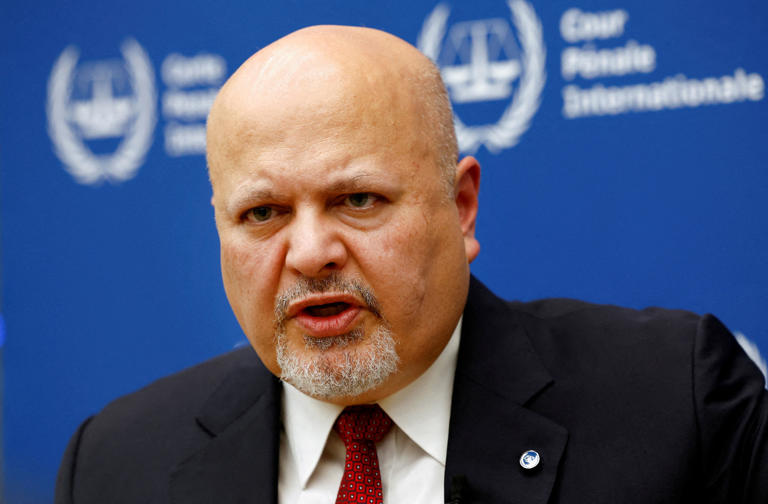ICC, Gaza war probe, International Criminal Court, war crimes, Israel, Palestine, Benjamin Netanyahu, United States, diplomatic relations, human rights, accountability
Explore the complexities of the ICC’s Gaza war probe, its implications for international justice, and the geopolitical tensions surrounding war crimes investigations in the region.
The International Criminal Court (ICC) finds itself embroiled in a complex web of geopolitics, legal wrangling, and moral imperatives as it navigates the delicate terrain of investigating alleged war crimes in Gaza. The recent demand by the ICC’s prosecutor’s office to cease threats against its staff highlights the challenges faced by international institutions in upholding justice while navigating geopolitical minefields.

The ICC’s appeal for an end to intimidation of its personnel underscores the gravity of the situation. Any attempts to impede, intimidate, or improperly influence ICC officials are not just threats against individuals but also against the very administration of justice that the ICC represents. The Rome Statute, the foundational document of the ICC, expressly prohibits such threats, emphasizing the court’s mandate to act independently and impartially.
The current focus of attention revolves around potential ICC action regarding Israel’s conduct in Gaza. Reports suggesting that arrest warrants might be issued for Israeli officials, including Prime Minister Benjamin Netanyahu, have sparked a vehement backlash from Israel and its allies, particularly the United States. The Israeli military’s actions in Gaza, resulting in significant civilian casualties and destruction, have raised serious concerns about possible war crimes.
Israeli and US officials have not minced words in their opposition to ICC involvement. Netanyahu’s video message condemning the ICC’s actions reflects Israel’s stance on what it perceives as an assault on its right to self-defense. The United States, while not a party to the Rome Statute, has a vested interest in protecting its ally Israel and has historically been skeptical of the ICC’s jurisdiction over non-member states.
The ICC’s predicament is further complicated by its ongoing investigation into alleged war crimes by Hamas fighters in Israel. This dual scrutiny underscores the ICC’s mandate to hold all parties accountable for violations of international humanitarian law, regardless of political affiliations.
The political ramifications of ICC actions cannot be understated. Israel and the US view ICC intervention as a threat to their sovereignty and legitimacy. Calls for President Biden to intervene reflect a broader concern about the ICC’s role in international affairs and its potential impact on diplomatic relations.
The Biden administration’s decision to lift sanctions against ICC officials, imposed during the Trump era, signals a nuanced approach to international justice. While reaffirming support for Israel, the administration also recognizes the importance of upholding the principles of the ICC and allowing investigations to proceed unhindered.
Palestine’s acceptance of the ICC’s jurisdiction adds another layer of complexity to the situation. As a permanent observer state at the United Nations, Palestine has sought to leverage international institutions in its quest for justice and recognition. The ICC’s investigations into alleged Israeli abuses in Palestinian territories resonate deeply with Palestinian aspirations for accountability and redress.
At the heart of the matter lies the ICC’s credibility and independence. The court’s ability to carry out impartial investigations and pursue justice without fear or favor is paramount. Threats and intimidation only serve to undermine the ICC’s mandate and erode trust in international mechanisms for accountability.
The Gaza war probe serves as a litmus test for the ICC’s effectiveness in addressing complex geopolitical conflicts. The court must navigate through political pressures, legal challenges, and moral imperatives to deliver justice that is not only fair but also perceived as such by all stakeholders.
The ICC’s role goes beyond legal proceedings; it embodies the aspirations of a global community committed to upholding human rights and accountability. The challenges it faces in the Gaza war probe underscore the complexities of international justice and the need for steadfast determination in the pursuit of truth and accountability.
In conclusion, the ICC’s demand to end threats against its staff is a reaffirmation of its commitment to impartiality and independence. The Gaza war probe, while fraught with challenges, presents an opportunity for the ICC to demonstrate its effectiveness in addressing complex conflicts and delivering justice that transcends political considerations. As the world watches, the ICC’s decisions and actions will shape not only the outcome of this investigation but also the future of international justice.
Read More-